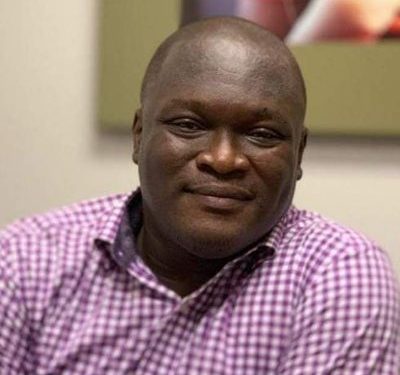Regulatory Weakness, Capped Stabilisation Fund Undermining Ghana’s Petroleum Revenue Management – PIAC
Chair of the Technical Sub-Committee of the Public Interest and Accountability Committee (PIAC), Richard Ellimah, has expressed deep concern over what he describes as regulatory and institutional weaknesses in Ghana’s petroleum revenue management framework.
Speaking during the NorvanReports, Economic Governance Platform, and Ghana Anti-Corruption Coalition X Space discussion on the theme “Beyond Declining Barrels: Can Ghana’s Petroleum Revenues Still Power Development?”, Mr. Ellimah noted that the sharp rise in uncollected surface rentals from US$400,000 to US$2.8 million within a year points to a serious regulatory gap.
According to him, the situation reveals “a certain weakness in the regulatory institutions mandated to do their job,” adding that the lack of institutional collaboration and inadequate capacity to collect revenues due to the state, are major red flags.
“The sign of our inability to portray capacity to collect what is due to the state sends a signal to investors that they can come in here, do whatever they like, and move on without the state being able to chase them for the money,” he lamented.
Mr. Ellimah also raised concerns over the capping of the Ghana Stabilisation Fund (GSF) at US$100 million, describing it as “illegal” and contrary to the provisions of the Petroleum Revenue Management Act (PRMA).
He revealed that applying the correct statutory formula would have resulted in over US$500 million in the fund, instead of the current US$122 million, warning that the artificial ceiling undermines the fund’s purpose as a fiscal buffer during economic shocks.
“When Ghana goes into a crisis situation, we cannot rely on this stabilisation fund. We have repeatedly recommended that Parliament compel the Ministry of Finance to revert to the lawful formula,” he emphasised.
Touching on PIAC’s oversight role, Mr. Ellimah clarified misconceptions surrounding the Committee’s stance on the government’s “Big Push Agenda,” stating that PIAC supports the policy’s focus on channeling petroleum revenues into legacy infrastructure projects.
“We have always advocated that petroleum revenues should not be spread too thinly. Our only concern was being cut off from ABFA funding, which affects our operational independence, not the Big Push itself,” he clarified.
On whether PIAC possesses enforcement powers, he explained that while the Committee lacks legal authority to compel compliance, it relies on transparency and public engagement to ensure accountability.
“We may not have the legal powers to enforce our recommendations, but we have the supreme tool of reporting directly to the people of Ghana and expecting them to put pressure on their Members of Parliament and duty-bearers,” he remarked.
Mr. Ellimah concluded by urging the Ministry of Finance to initiate a comprehensive review of the PRMA to strengthen oversight, enhance transparency, and align the law with evolving sector realities.
Petroleum Revenues Drop to $370m in First Half
According to the Public Interest and Accountability Committee (PIAC) in its 2025 Semi-Annual Report on the utilisation of revenue from the country’s crude oil production, Ghana’s petroleum receipts for the first half of 2025 fell sharply by 56 percent year-on-year.
The report revealed that a total of US$370,343,681.17 was lodged into the Petroleum Holding Fund (PHF) for the period under review, compared with US$840,765,265.80 recorded in the same period of 2024.
PIAC attributed the decline to lower crude oil liftings and a drop in global oil prices, which affected export revenues across Ghana’s producing fields — Jubilee, TEN, and Sankofa-Gye Nyame (SGN).
The 2025 first-half petroleum receipts were derived from Corporate Income Taxes (CIT), Carried and Additional Participating Interest (CAPI), Royalties, Surface Rentals, and Interest on the PHF. Of the total receipts, CAPI contributed US$178,481,074.52 (48%), CIT generated US$148,753,288.61 (40%), while Royalties yielded US$40,148,118.11 (10.8%). Interest on the PHF amounted to US$2,098,154.12, and Surface Rentals accounted for US$863,045.81, representing less than one percent of total inflows.
PIAC noted that from 2011 to date, Ghana’s cumulative petroleum revenues have reached US$11.58 billion, underscoring the sector’s continued importance to public finances despite recent volatility.







